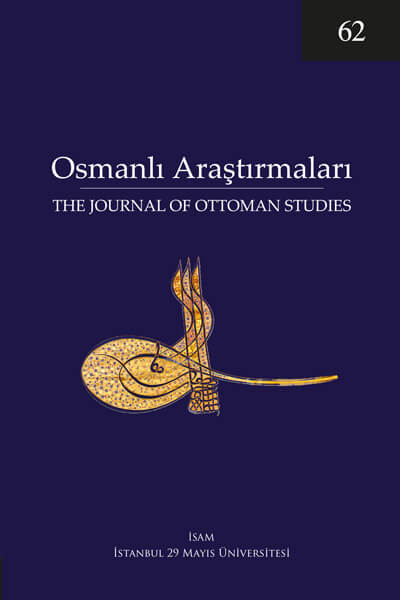A Scholar-Historian in His Mirror: Self-narrative and Identity in Ibn Kennān’s Yavmiyya
Keywords:
Ibn Kannān al-Sālihī, Yawmiyya, self-narrative, Damascus, Khalwatiyya, ulamāAbstract
Ibn Kannān lived in Sâlihiyya, one of the cultural centers of 18th century Ottoman Damascus. By teaching in a madrasa there and by maintaining the sheikhdom of Khalwatiyya in a mosque, he has performed the practices of ālim and sūfi identities shaped according to his own traditions throughout history. It is noteworthy that he used a self-narrative style in his chronicle titled al-Hawādith al-yawmiyya min-tārīkh ahada ‘ashara wa alf wa miyya, which also shows that he belonged to these traditional identities. In addition to his determinations and comments about the de- velopments that he narrated in his chronicle, his narrations in this self-narrative style suggest that he was interacting with the traditions in question based on the conditions of the time and place where he lived. In addition to these two identity areas, being Damascene, which was shaped by adopting the climate, flora and architectural presence of the city where he lived, was another area of belonging of Ibn Kennān. The sheikhdom of Khalwatiyya was a duty that he inherited from his father at a young age. The information he gave in Yamiyya about the order of which he was the sheikh and the members of this order is important in terms of exemplifying how sūfi life was lived in Damascus in the 18th century. The narratives about his teaching career, which he started in a late period of his life, both reveal his struggle to maintain this profession and provide information about the functioning of the educational system in Damascus.




